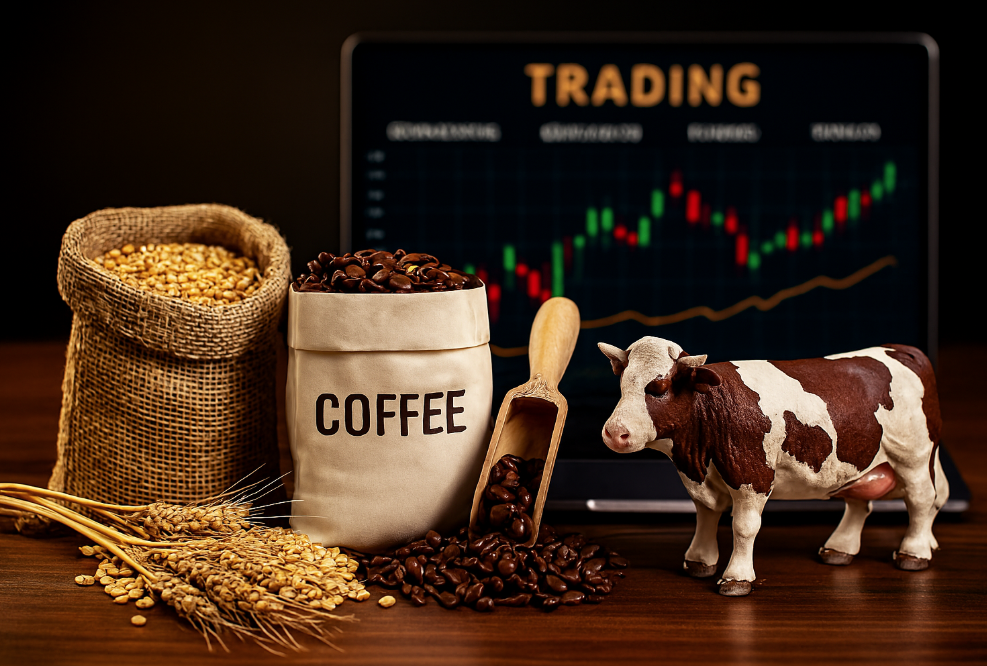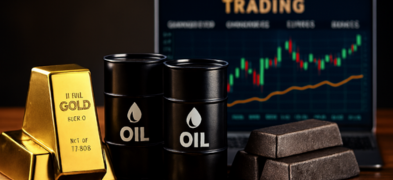Important Information
This website is managed by Ultima Markets’ international entities, and it’s important to emphasise that they are not subject to regulation by the FCA in the UK. Therefore, you must understand that you will not have the FCA’s protection when investing through this website – for example:
- You will not be guaranteed Negative Balance Protection
- You will not be protected by FCA’s leverage restrictions
- You will not have the right to settle disputes via the Financial Ombudsman Service (FOS)
- You will not be protected by Financial Services Compensation Scheme (FSCS)
- Any monies deposited will not be afforded the protection required under the FCA Client Assets Sourcebook. The level of protection for your funds will be determined by the regulations of the relevant local regulator.
Note: Ultima Markets is currently developing a dedicated website for UK clients and expects to onboard UK clients under FCA regulations in 2026.
If you would like to proceed and visit this website, you acknowledge and confirm the following:
- 1.The website is owned by Ultima Markets’ international entities and not by Ultima Markets UK Ltd, which is regulated by the FCA.
- 2.Ultima Markets Limited, or any of the Ultima Markets international entities, are neither based in the UK nor licensed by the FCA.
- 3.You are accessing the website at your own initiative and have not been solicited by Ultima Markets Limited in any way.
- 4.Investing through this website does not grant you the protections provided by the FCA.
- 5.Should you choose to invest through this website or with any of the international Ultima Markets entities, you will be subject to the rules and regulations of the relevant international regulatory authorities, not the FCA.
Ultima Markets wants to make it clear that we are duly licensed and authorised to offer the services and financial derivative products listed on our website. Individuals accessing this website and registering a trading account do so entirely of their own volition and without prior solicitation.
By confirming your decision to proceed with entering the website, you hereby affirm that this decision was solely initiated by you, and no solicitation has been made by any Ultima Markets entity.
I confirm my intention to proceed and enter this website Please direct me to the website operated by Ultima Markets , regulated by the FCA in the United KingdomInvesting in commodities can be a smart way to diversify your investment portfolio. In this guide, we’ll explain how to invest in commodities, why it might benefit your portfolio, and the different ways you can invest in them. Whether you’re new to investing or experienced, learning about commodities can offer valuable opportunities to protect against inflation and grow your wealth.
What Are Commodities?
Commodities are basic goods that are bought and sold, like oil, gold, or crops. They’re divided into two main types:
- Hard Commodities: These include natural resources like gold, oil, and metals.
- Soft Commodities: These include agricultural products like wheat, coffee, and livestock.
These goods are traded on global markets, allowing investors to buy and sell them just like stocks.

Why Should You Invest in Commodities?
Investing in commodities offers several key benefits:
Protect Against Inflation
Commodities often rise in price when inflation increases. As the cost of everyday goods goes up, the price of commodities like gold and oil can go up too, helping protect your money.
Diversify Your Portfolio
Commodities tend to move differently than stocks or bonds. By investing in them, you can reduce the overall risk of your portfolio.
Chance for High Returns
The commodity market can offer high returns due to price changes, especially during times of uncertainty. For example, gold prices can rise during financial instability.
How to Invest in Commodities
Commodity ETFs (Exchange-Traded Funds)
One of the easiest ways to invest in commodities is through Commodity ETFs. These funds let you invest in a basket of commodities without having to buy the actual products.
Benefits of Commodity ETFs:
- Easy to Trade: You can buy and sell ETFs on stock exchanges, just like stocks.
- Diversified Investment: Many ETFs hold multiple commodities, reducing risk.
- Low Fees: ETFs are typically cheaper than other investment options.
Commodity Mutual Funds
Commodity mutual funds invest in companies related to commodities, like mining companies. These funds don’t directly buy the commodities, but they give you exposure to the industry.
Benefits of Commodity Mutual Funds:
- Managed by Experts: Professional managers choose the best companies to invest in.
- Diversified: These funds often invest in different sectors of the commodity market.
Futures Contracts
Futures contracts are agreements to buy or sell a commodity at a set price in the future. These are used by more experienced investors and offer direct exposure to commodity prices.
Benefits of Futures Contracts:
- Direct Exposure: You get access to the price movements of the commodity itself.
- Leverage: Futures allow you to control a large amount of a commodity with a smaller upfront investment, which can increase potential profits (and losses).
Commodity Stocks
You can also invest in stocks of companies that produce commodities, like oil companies or mining firms. This method gives you indirect exposure to commodities, but it can still provide good returns.
Benefits:
- Growth Potential: If the companies do well, their stock prices can rise, alongside commodity prices.
- Income: Some commodity-producing companies pay dividends.
Commodity Pools and Managed Accounts
Commodity pools are private investment funds that pool money from investors to buy commodities. Managed accounts let a professional manager handle your commodity investments for you.
Benefits:
- Expert Management: Professionals make investment decisions for you.
- Diversification: These funds often invest in multiple types of commodities, which can reduce risk.
Risks of Investing in Commodities
While commodities can offer great benefits, they also come with risks:
- Volatility: Commodity prices can change quickly, influenced by factors like weather or politics.
- Leverage Risk: Some commodity investments, like futures, use leverage, which can increase both profits and losses.
- Economic Risks: A slowdown in the economy can reduce demand for commodities, leading to lower prices.
What Affects Commodity Prices?
Commodity prices are influenced by several key factors:
Supply and Demand
Commodities are priced based on how much is available and how much people need. If there’s a shortage of oil or crops, prices can rise. For example, oil prices soared during the 2021 supply chain disruptions caused by the pandemic and OPEC+ production cuts, showing how reduced supply can drive prices up.
Global Events
Political events or natural disasters can affect the supply of commodities, causing price spikes. For example, conflicts in oil-producing regions can drive up oil prices. A recent example is the Russia-Ukraine conflict, which led to spikes in oil and wheat prices in 2022 due to concerns over supply disruptions from one of the world’s largest producers of these commodities.
Economic Health
When the economy grows, demand for commodities increases, which can raise prices. But when the economy slows down, commodity prices may fall. For instance, during periods of strong economic growth, such as the post-2008 recovery, demand for commodities like copper and oil increased, driving prices higher. In contrast, during the 2020 COVID-19 pandemic, the global recession reduced demand for many commodities, causing prices to dip.
Currency Changes
Commodity prices are often priced in US dollars, so changes in the value of the dollar can impact prices. A weaker dollar can make commodities cheaper for international buyers, potentially driving prices up. For example, when the US dollar weakened against other currencies in 2020 due to economic uncertainty, the price of gold surged, as it became cheaper for buyers using other currencies.
Market Speculation
Speculators in commodity markets can drive prices based on their expectations of future events. A recent example is Bitcoin’s impact on precious metals as institutional investors shifted part of their portfolios to Bitcoin in 2020 and 2021, gold prices temporarily fell, as some investors moved out of traditional commodities in favor of the cryptocurrency.
Conclusion
Commodity trading can be a valuable addition to any investment portfolio, offering opportunities to hedge against inflation, diversify risk, and potentially earn high returns. By understanding the factors that influence commodity prices, such as supply and demand, geopolitical events, economic growth, weather conditions, currency fluctuations, and market speculation, investors can make more informed decisions.
Whether you’re looking to protect your assets in times of economic uncertainty or take advantage of price volatility, commodity trading provides a range of options, from ETFs and mutual funds to futures contracts and commodity stocks. However, it’s important to recognize the inherent risks, including price volatility and leverage, which can amplify both gains and losses.
For those interested in diversifying their portfolio and exploring new investment opportunities, commodity trading offers a chance to tap into the global market for essential goods. As always, it’s crucial to align your trading strategy with your financial goals, risk tolerance, and market knowledge.
Disclaimer: This content is provided for informational purposes only and does not constitute, and should not be construed as, financial, investment, or other professional advice. No statement or opinion contained here in should be considered a recommendation by Ultima Markets or the author regarding any specific investment product, strategy, or transaction. Readers are advised not to rely solely on this material when making investment decisions and should seek independent advice where appropriate.












